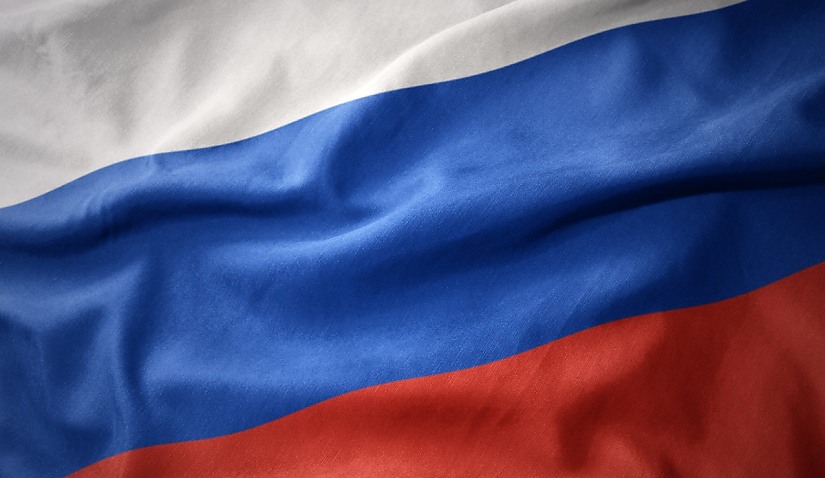Powered by MOMENTUM MEDIA
The International Bar Association (IBA) has condemned the arrest and pre-trial detention of Russian lawyer Dmitry Talantov for the comments he posted on social media criticising Russia’s invasion of Ukraine.

Mr Talantov is president of the Bar Association of the Republic of Udmurtia and is a human rights defender.
Mr Talantov was arrested under an aspect of the law that covers “public dissemination of knowingly false information about use of the Russian Armed Forces abroad and execution by the Russian government bodies of their powers, committed with motives of enmity or hatred”.
If charged, Mr Talantov faces five to 10 years of imprisonment.
Mr Talantov did not have access to any legal assistance at the time of his arrest, or when he was questioned by the Investigation Committee of the Republic of Udmurtia.
Law enforcement raided his apartment, country house, and office in the Bar Association of the Udmurtia region, seizing documents and data storage devices containing information subject to attorney-client privilege.
His colleagues have stated that Russian Federal Security Services might be targeting him for acting as a defence attorney of former journalist and adviser to the head of Roscosmos, Ivan Safronov, who is currently on trial for treason.
Mr Safronov’s other lawyer fled Russia out of fear of persecution and is now reportedly labelled as a “foreign agent” by the Russian authorities.
Mr Talantov has been detained since being arrested on 28 June, and on 19 August, the Cheryomushki Court of Moscow extended his detention to at least 23 September.
The Moscow Cheryomushki District Court determined that Mr Talantov should not be allowed out on bail. The prosecutor claimed that the case contained “state secret information protected by the law” and, as such, that proceedings should take place behind closed doors.
Mr Talantov’s counterargument that none of the evidence contained state secrets was disregarded. It has been reported that he is being held in poor conditions and has been denied medical assistance.
IBA president Sternford Moyo stated that the IBA calls for the release of Mr Talantov and for all charges against him to be dropped.
“The arrest and prolonged detention of Mr Talantov is an example of the authorities in Russia disregarding the country’s Constitution.
“Article 29 of the Constitution of the Russian Federation guarantees freedom of thought and speech to everyone. It contains the right to freely seek, receive, transmit, produce, and disseminate information in any legal way.
“Under the Constitution, freedom of the media is guaranteed, and censorship is prohibited. However, the reality is very different.
“The introduction of the new law under which Mr Talantov has been charged can only be viewed as an attempt by Russia’s authorities to undermine the Constitution with the objective of silencing dissent and controlling the thinking of the Russian people.
“Mr Talantov and all Russian citizens should be free to express their opinions without fear of arrest and detention. The IBA condemns the arrest of Mr Talantov and calls for the repeal of Article 207.3 of the Russian Criminal Code,” said Mr Moyo.
The Russian Federal Bar Association (RFBA), which has the remit to protect the professional rights of lawyers, has taken no significant action to protect Mr Talantov’s rights. The organisation’s position has been to remain “neutral” on violations of the rule of law, human rights, and access to justice.
Mr Talantov was a member of the Council of the RFBA, from 2009 to 2011, and has spoken out against the policy of “neutrality” — he is therefore unlikely to receive any assistance from the Federal Chamber in his case, noted the IBA.
IBA executive director, Dr Mark Ellis, said that the criminal prosecution and pre-trial detention of Mr Talantov is an indisputable violation of Article 19 of the Universal Declaration of Human Rights, which states: “Everyone has the right to freedom of opinion and expression; this right includes freedom to hold opinions without interference and to seek, receive and impart information and ideas through any media and regardless of frontiers.”
The right to freedom of expression is further protected under international law, including under Article 19 of the International Covenant on Civil and Political Rights.
“The charges against Mr Talantov expressly undermine his freedom of expression. Furthermore, his detention appears to criminalise his legitimate activities as a lawyer,’ said Dr Ellis.
“Although the Federal Bar has failed to demonstrate action in support of Mr Talantov’s release, more than 500 members of Russia’s legal profession have signed the petition defending Mr Talantov’s professional accomplishments and expressing outrage at this criminalisation of expression.
“The representatives of the legal profession who have signed the petition seek to uphold and protect the rule of law, access to justice, human rights, and the professional rights of lawyers in Russia.
“In what is a repressive political and legal environment these professionals should be applauded for their integrity and bravery,” said Dr Ellis.
Pavel Maguta, a past director of the international division of the RFBA, said that the targeting and systemic persecution of lawyers by the Russian state forms a worrying trend that includes judicial harassment, office searches and seizures that violate attorney-client privilege, disciplinary penalties, and disbarment threats.
“These actions have contributed to the rapid shrinking of civil society space in Russia,” said Mr Maguta. “The arrest and detention of Dmitry Talantov is a gross violation of freedom of expression.
“It is crucial to speak publicly about this case and the generally disgraceful situation faced by the legal profession in Russia. Both demand reaction from the international legal community.”
We're evolving — and so should your insights. Heads up — Lawyers Weekly is going premium from 1 May for just $5 a month. Stay informed without missing a beat. More information coming soon.